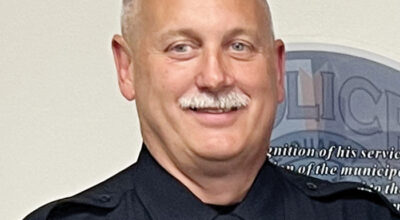Voters face uphill climb to being well-informed for primary
Published 12:10 am Sunday, March 1, 2020
By Liz Moomey
liz.moomey@salisburypost.com
SALISBURY — On a day colloquially known as Super Tuesday, Rowan County voters will have their selection of 15 Democratic presidential candidates and three Republican candidates as they work their way down to U.S. Senate and and council of state races.
The long list of candidates can pose a challenge in simply getting to know who’s on the ballot. Meanwhile, while some candidates will appear on the ballot, they’ve already stopped campaigning. Since filing ended in December, just eight Democratic and two Republican presidential candidates have active campaigns. In the weeks before the election, some have stopped in North Carolina’s metro areas to get their message out.
Michael Bitzer, politics professor and department chair at Catawba College, said the type of voter who casts a ballot in a primary is different.
“Primary elections tend to draw out voters who are most engaged, who tend to participate the most, who are knowledgable about the issues and candidates versus your average voter who may or may not realize there’s a primary election coming up,” Bitzer said.
Until 2008, Bitzer said, North Carolina’s primary was an afterthought. With a number of other states as well as North Carolina representing the first multi-state election day in the primary, that’s no longer the case.
“If presidential candidates don’t look at primaries as when you begin laying out the groundwork, when you start building an infrastructure for the fall, then they are taking the state for granted,” Bitzer said.
Some presidential campaigns are focusing on social media and text messages to get their information out, he said.
Tom Campbell, a political commentator and host of UNC-TV’s show NCSPIN, said grassroots campaigns will make an impact.
“This is going to be an election in which grassroots or retail politics is really going to make a difference, having volunteers who will go out and knock on doors and pass out information on the candidate,” Campbell said. “I think you’re going to see that pays big dividends for candidates who have the organization and who have the volunteers to get out and do it.“
Campbell said he sees voters struggling in deciding who to choose in some races.
“This has repercussions all up and down the line,” Campbell said.
And while voters may easily mark their ballot for the presidential, U.S. Senate and possibly gubernatorial race, other state and local candidates are struggling to get their message across to voters.
“In a normal primary election, whether it’s a presidential election or not, you will have seen television ads, you would’ve heard radio, would have mailers in your mailbox, lots of yard signs,” Campbell said. “I don’t know how it is across the state, but I know that here in Wake County we have not seen nearly as many yard signs, mailers because the national candidates are taking up all the airtime they can.”
Bitzer said voters tend to vote at the top of the ballot, but for some of the other offices they play “Eeny, meeny, miny, mo” or choose not to mark that part of the ballot.
“You may get some voters who show up on Tuesday having heard about Michael Bloomberg and Joe Biden and Bernie Sanders or pick the Republican ballot thinking OK I’m voting for Donald Trump, then I’m voting for Dan Forest, but maybe I don’t know who these other candidates are,” Bitzer said. “There’s some serious ballot dropoff.”
Local items in Rowan County include a three Republicans — Mike Caskey, Craig Pierce and Lee Withers — vying for two spots on the county commission; two Democrats — Geoffrey Hoy and Tarsha Ellis — seeking the nomination in N.C. Senate District 33; and a $45 million bond referendum to build a technology education complex at Rowan-Cabarrus Community College.
Campbell said this year is unique, with Ash Wednesday, a leap day and the presidential primary election all within a seven-day period. The nightly news has been focused on national issues, from impeachment to coronavirus, and there hasn’t been room to identify the candidates, Campbell said.
Campbell added that campaigns should not take rural voters for granted.
“We don’t put enough confidence in rural voters,” Campbell said. “I think there is generally a feeling that if you live in a rural area, you’re not well-informed.”
Gov. Roy Cooper, a Democrat, and Lt. Gov. Dan Forest, the front runner in the Republican primary to take on Cooper, seem to have recognized the importance of rural voters.
Liz Doherty, senior communications advisor for Cooper, says the Democratic incumbent knows the importance of rural areas, especially growing up in Nash County. Doherty said his platform focuses on actual support and meaningful reform for rural voters, like Medicaid expansion and increasing teacher pay. Cooper is also in favor of a bond package to build schools, which will include an expansion of broadband internet services.
“These are the things that impact people’s day-to-day life,” Doherty said.
She said there is no specific time when the campaign will begin to ramp up, but Cooper remains focused on serving as governor and plans to run a $10 million TV campaign starting in September.
Andrew Dunn, communications director for Forest’s campaign, said the Republican has been meeting and greeting voters across the state, particularly in rural areas. He had two weekend “barnstorm” tours as well.
“People get to meet you, they get to know you, they really get to see who you are,” he said in an email. “So when all those ugly ads start popping up with scary music, they’ve already met you, they’ve already shook your hand. They say, ‘Well that’s not the guy that I know.’ That’s really what helps you win campaigns.”
Dunn said the campaign doesn’t change with the location. The focus is always unity, opportunity and possibility.




